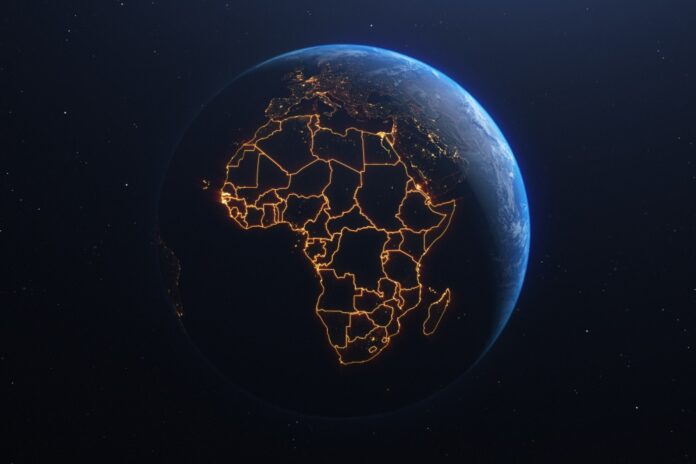Maybe. A new GSMA report identifies mobile-enabled edge as a key solution to overcoming critical infrastructure challenges
Africa represents 2.5% of today’s global AI market, but emerging applications could boost the continent’s economic growth by $2.9 trillion by 2030 according to AI4D Africa.
A new GSMA report AI for Africa: Use cases delivering impact, developed from existing research and interviews with leaders across civil society, non-government organisations, academia and the private sector, identifies over 90 AI use case applications in frontrunning technology markets (Kenya, Nigeria, and South Africa) that can drive socio-economic and climate impact.
Naturally, turning potential into actual AI involves overcoming barriers from the limited availability of data centres to big tech investments. The report reckons that by addressing the digital skills gaps and scarcity of smartphones, mobile-based AI solutions could offer a practical way to circumvent limitations and tap into AI’s potential across the continent.
Today, most African AI use cases are related to agriculture (49%), climate action (26%) and energy (24%).
Agriculture dominates
Agriculture employs 52% of the African working population and contributes 17% on average to GDP. In Sub-Saharan Africa, up to 80% of food is produced by smallholder farmers who often use traditional techniques and lack access to information that would help improve yields.
The GSMA finds that most AI use cases are digital advisory services enabled by machine learning, typically accessed by farmers via mobile devices.
Affordable, reliable energy services
The region faces serious challenges in access to electricity and a reliable supply: half Africa’s population has no access to electricity. AI-enabled solutions in Africa are improving on-grid infrastructure and off-grid systems through applications like predictive maintenance, smart energy management, assessing access to energy and ‘productive use’ financing to monitor and extend services where energy is scarce.
Improving access to energy and greater efficiency in this sector is vital, in the GSMA’s estimation, because it creates a virtuous cycle: greater access to and use of connectivity and data are the fuel needed for AI.
Supporting climate action
Despite contributing less than 3% of global energy-related CO2 emissions, Africans disproportionately suffer from climate change; without intervention, climate-related emergencies could reduce African GDP by 8% by 2050.
The GSMA finds that the increasing availability of remote sensing technologies and satellite imagery has supported the development of uses cases for natural resources management, where AI is being used for biodiversity monitoring and wildlife protection.
Early warning systems that offer predictive analytics and real-time assessment of disasters, including climate emergencies, are also improving through ML models, providing better forecasting in areas where data is scarce.
Most (98%) of AI use cases in Africa are predictive AI applications, reliant on ML, as historical datasets are available, simpler applications and lower computation requirements compared with Generative AI (GenAI) models. The GSMA says more nascent use cases and GenAI are key to driving long-term socio-economic benefits.
Unlocking AI capabilities
Effective training of AI models needs extensive, diverse and representative data that reflect the complexities and nuances of African markets rather than mimic data from the Global North. For instance, there is a dearth of local-language data cross Africa, hindering AI’s development and scale.
AI development also requires robust infrastructure and computing power. As AI applications expand, the energy demands of data centres and the cost of hardware and software will rise. The continent already faces a shortage of data centres and, in countries such as South Africa and Kenya, the cost of a graphics processing unit (GPU) is prohibitively high, representing 22% and 75% of GDP per capita, respectively. This make running AI applications much more expensive than in rich countries.
As local compute ecosystems grow, countries can leverage mobile-first markets to develop distributed or hyperlocal edge computing, running tasks on devices including phones and laptops to reduce reliance on high-powered data centres. After foundational models are trained on large datasets, they can be transferred to smartphones for fine tuning.
Current smartphone penetration is at 51% and expected to reach 88% by 2030, boosting mobile-based edge computing which will be central to expanding the proliferation and capabilities of AI in Africa.
Better skills all round
Max Cuvellier Giacomelli, Head of Mobile for Development at the GSMA, said, “To harness the transformative potential of AI across Africa, there needs to be a strong focus on increasing skills for both AI builders and users, especially among underserved populations. Better training programmes are essential, particularly in the face of a global brain drain on AI talent.
“To ensure Africa doesn’t get left behind, strong partnerships are required across a broad ecosystem of partners including ‘big tech’, NGOs, governments, and mobile operators. Policies must also evolve to address inequality, ethics, and human rights concerns in AI deployment.
“As African countries shape their own unique AI strategies, active engagement in global forums will be pivotal in defining regulatory frameworks that promote ethical AI development and safeguard societal interests, moving toward sustainable solutions that benefit all African communities.”



